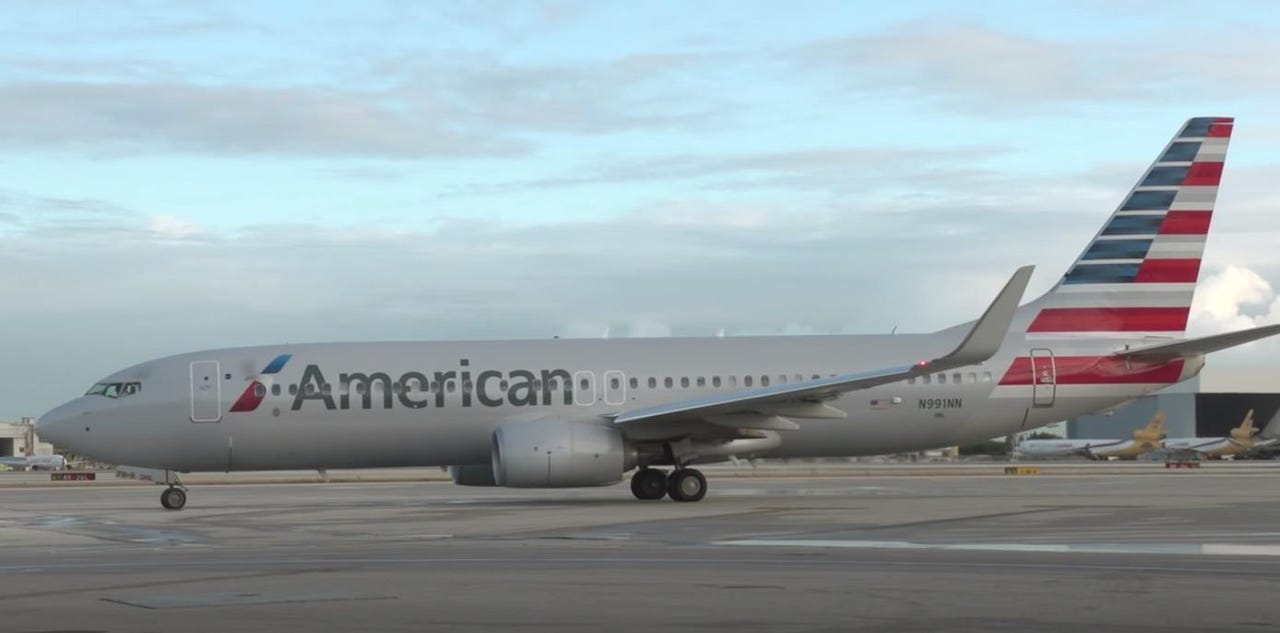American Airlines to offer free Wi-Fi? Here's what it'll cost you

Good WiFi, but the rest?
Flying has become a little less glamorous.
Delays are commonplace. Cancellations are regular, too. And even the latest planes, like the Boeing 737 MAX, seem to have been created with commercial exigencies more prominent than those of, say, safety.
Featured
Still, there's one thing flyers crave on a flight.
No, not food or friendly smiles. Those departed a while ago and are only slowly making a comeback.
Instead, everyone wants Wi-Fi . Good Wi-Fi. Great Wi-Fi . Free Wi-Fi .
Currently, the likes of JetBlue offer it. On most airlines, however, the cost can be aggravating. Why, Gogo asked for $40 just to offer me a mediocre connection on a cross-country flight.
Last year, however, Delta Air Lines CEO Ed Bastian declared his airline's intention to offer free Wi-Fi very soon. The airline is currently testing it.
Now, rumors are emerging that American Airlines -- the biggest America has to offer -- is considering the same idea.
This does sound like glorious news.
Then again, why would airlines suddenly want to offer something useful for free? Could it be that it won't be as free as it seems?
Airlines have recently shown a tendency to give with one hand and and slip three more into every available passenger pocket. Sneaky nickel-and-diming charges have become one of those norms you're supposed to put up with and hate airlines for.
It's worth considering, then, how passengers might have to pay for the joy of staying on Instagram on a six-hour flight.
American, for example, has become something of a symbol for consistently removing things passengers used to think as standard.
The airline decided to configure its 737 MAX with as many seats as possible. It reduced legroom, even in First Class. It shoved in thinner seats, resembling those on buses. It removed seatback screens, insisting that most people use their own devices. (You're a family of five? Please make sure you have five iPads or at least a lot of nice big iPhones.)
And the new tiny bathrooms -- well, one pilot described them as "the most miserable experience in the world." An American Airlines pilot, that is.
The airline then began retrofitting its older planes to have the same configuration as the MAX.
Oh, and here's Lori Bassani, president of the Association of Professional Flight Attendants -- which represents American Airlines flight attendants -- telling a Congressional hearing on Wednesday: "It is a torture chamber for our passengers and for us, that also fly on our own airlines."
As well as deriding seats that are now smaller and have less padding, Bassani continued: "Can you imagine in a stressful situation trying to evacuate in a real life scenario passengers from a plane that is burning or that is half tilted or upside down?"
Passengers occasionally gripe, but mostly passively accept these new circumstances. They often don't have that much choice when they fly. Why, four airlines -- Delta, United, American and Southwest -- own more than 80% of all the seats sold in the US.
What better way, though, of soothing grumbling passengers than to slide them for free into Internet World, so they have something other than their seats to numb them?
TechRepubli
That's what technology is often used for. It's a pacifier for a child, a mesmerizing time-sucker for an adult.
And in this case, ultimately, likely a money-saver for airlines. Once they make sure there's enough reliable bandwidth, the airlines can do away with their own entertainment offerings and leave passengers entirely to their own devices.
Moreover, while the investment in free Wi-Fi is considerable, it's surely not a wild guess to suggest that passengers will love it and actually be (sneakily) asked to pay for it, as the running costs will be buried in slightly higher fares.
The coldly calculating will also wonder whether free Wi-Fi will tempt at least some airlines into shoving even more seats into their planes. Why, you'll be so engrossed in the web you won't notice you're in a stand-up seat.
Excellent free Wi-Fi may even become a genuine point of difference.
Will Americans choose -- when they have a choice -- to fly an airline whose Wi-Fi is better than that of others, as well as free? Currently, American's Wi-Fi , for example, is far more reliable than, say, United's.
Talking of whom, here's another headline from last week: "United Airlines wants Wi-Fi to be free."
